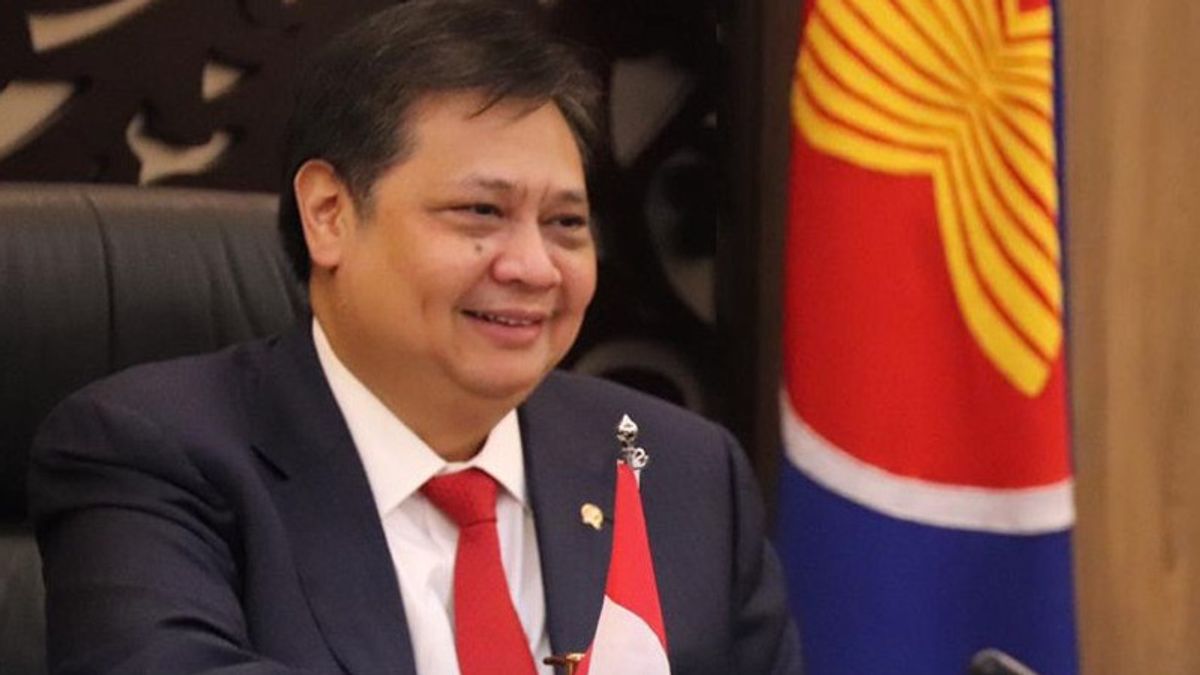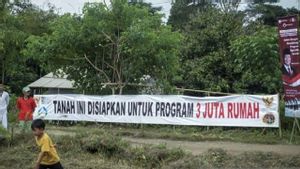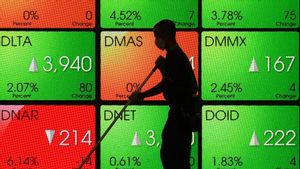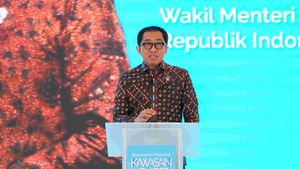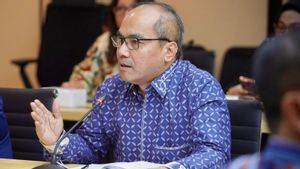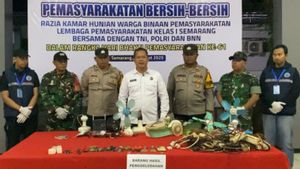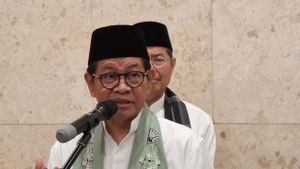JAKARTA - Coordinating Minister for Economic Affairs Airlangga Hartarto explained that the governments of Indonesia, Malaysia and Thailand are cooperating in seven fields. These include tourism, trade, agriculture to the halal industry.
The cooperation was stated in the Brunei Darussalam-Indonesia-Malaysia-Philippines East ASEAN Growth Area (BIMP-EAGA) Summit.
Furthermore, Airlangga explained that the three countries were chosen because of their close geographical conditions. All of the provinces in Sumatra were sent from Indonesia, while from Malaysia eight states on the Peninsula and Thailand 14 southern provinces.
"This cooperation covers seven fields, namely tourism, trade, investment, transportation, agriculture, the environment, human resources (HR) and cooperation in the halal sector," he said at a virtual press conference in Jakarta, Thursday, October 28.
The former Minister of Industry said that the delegations from the three countries also discussed the current situation of the outbreak of the COVID-19 pandemic. According to him, in 2019 to 2020 economic conditions were severely hit by the outbreak of the pandemic.
Meanwhile, said Airlangga, tourism was the most affected economic sector, where the number of tourist arrivals decreased drastically from 40 million per year under normal conditions to 8.2 million. In addition, the unemployment rate has increased dramatically.
"We see that what is still going well is foreign direct investment (FDI), from declining trade. Likewise from tourists and once again related to the unemployment rate," he said.
For your information, the world market for halal products is a very promising market. This is because the world's Muslim population is estimated to spend more than US$2 trillion in the food, pharmaceutical, cosmetic, fashion and recreation sectors.
Meanwhile, based on data from the Ministry of Trade, the export value of Indonesian halal products is estimated to have only reached US$6 billion or ranked 21st in the world. Meanwhile, Muslim fashion exports are estimated at US$4.1 billion or ranked 13th in the world.
Previously, Minister of Finance (Menkeu) Sri Mulyani Indrawati said that all countries were still facing the COVID-19 pandemic. This pandemic has had a tremendous impact in the health, social and economic fields. However, Sri said, in this crisis situation, the halal industry is still able to record good performance.
Globally, Sri said, spending on halal products in 2019 before the pandemic occurred, especially for food products, pharmaceuticals, cosmetics, fashion, and other products, reached 2.20 trillion US dollars and grew by 3.2 percent.
Sri said that this growth was higher than the world economic growth before the onset of COVID-19 which was 2.3 percent. This illustrates the potential of the market for halal products that are in demand by many consumers around the world.
This state treasurer said that Indonesia as a country with a large economy, included in the G20 group and with a large Muslim population, sees this potential as an opportunity to develop industries that can meet the wishes or demands for both Indonesia and the global market.
"I hope that the collaboration between KNEKS (National Committee for Sharia Economics and Finance) in continuing to develop the halal industry ecosystem in Indonesia and the business world, today with Unilever, but also in the region and the world will develop a good cooperation," he explained.
The English, Chinese, Japanese, Arabic, and French versions are automatically generated by the AI. So there may still be inaccuracies in translating, please always see Indonesian as our main language. (system supported by DigitalSiber.id)
